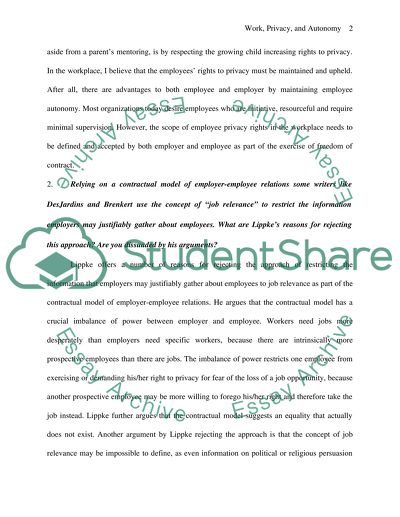Work, privacy, and autonomy Essay Example | Topics and Well Written Essays - 500 words. Retrieved from https://studentshare.org/miscellaneous/1549767-work-privacy-and-autonomy
Work, Privacy, and Autonomy Essay Example | Topics and Well Written Essays - 500 Words. https://studentshare.org/miscellaneous/1549767-work-privacy-and-autonomy.


